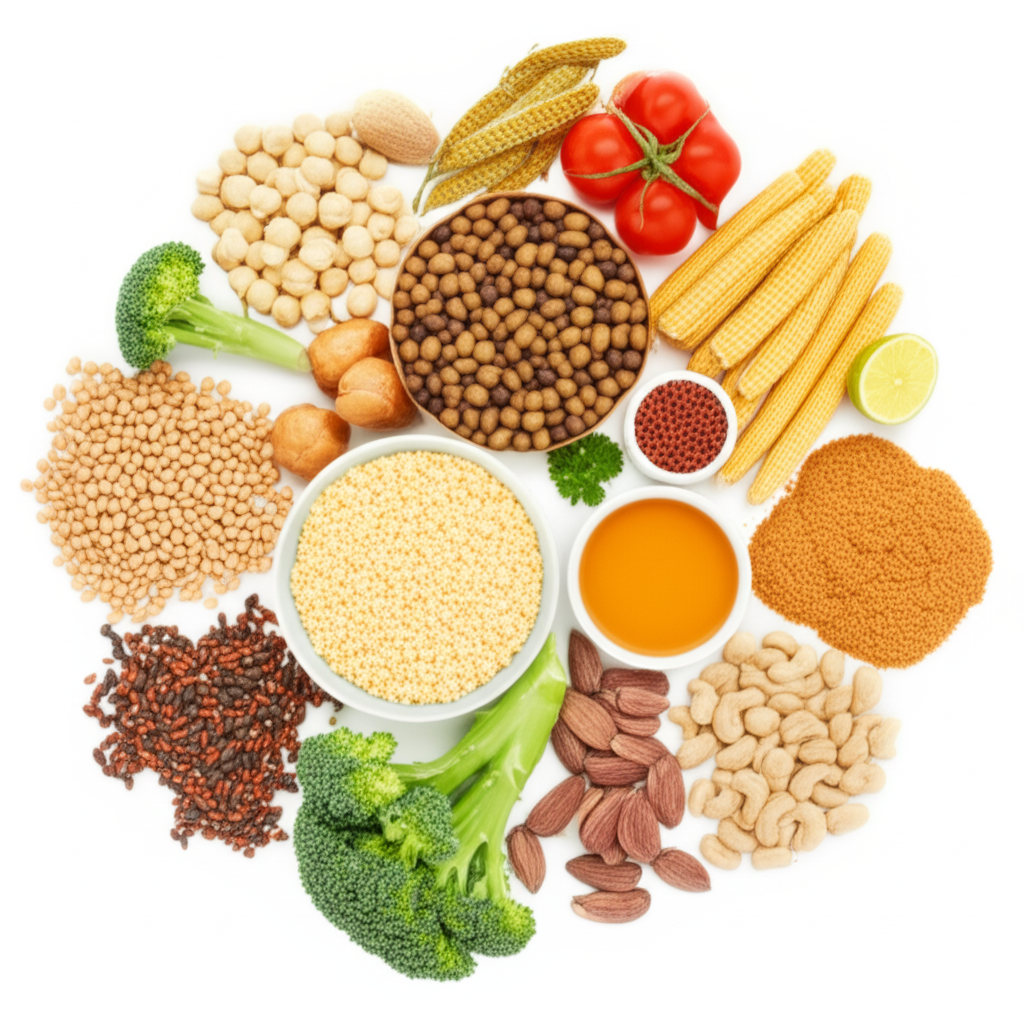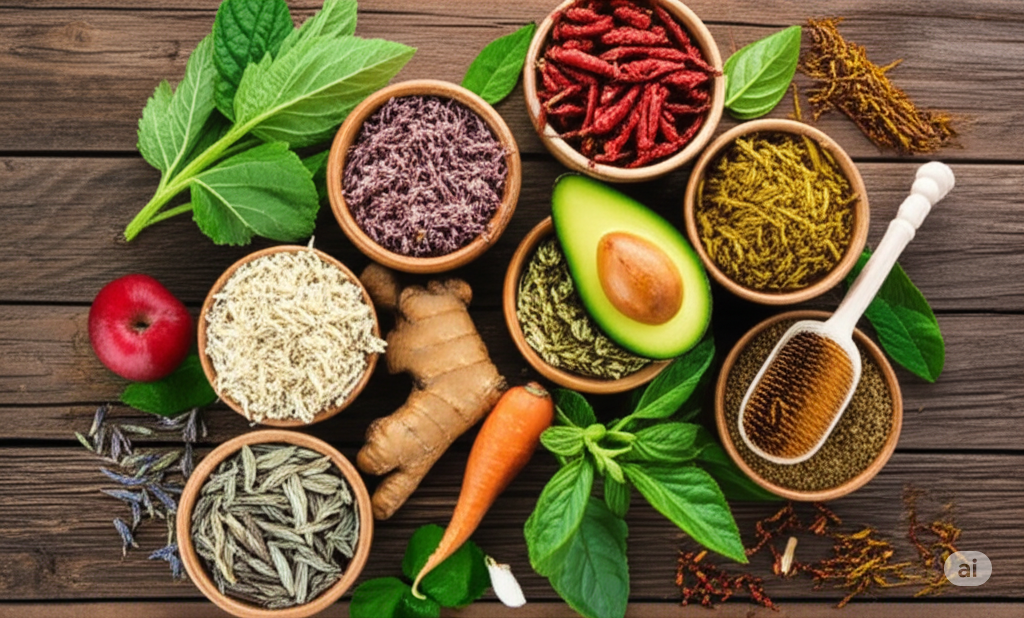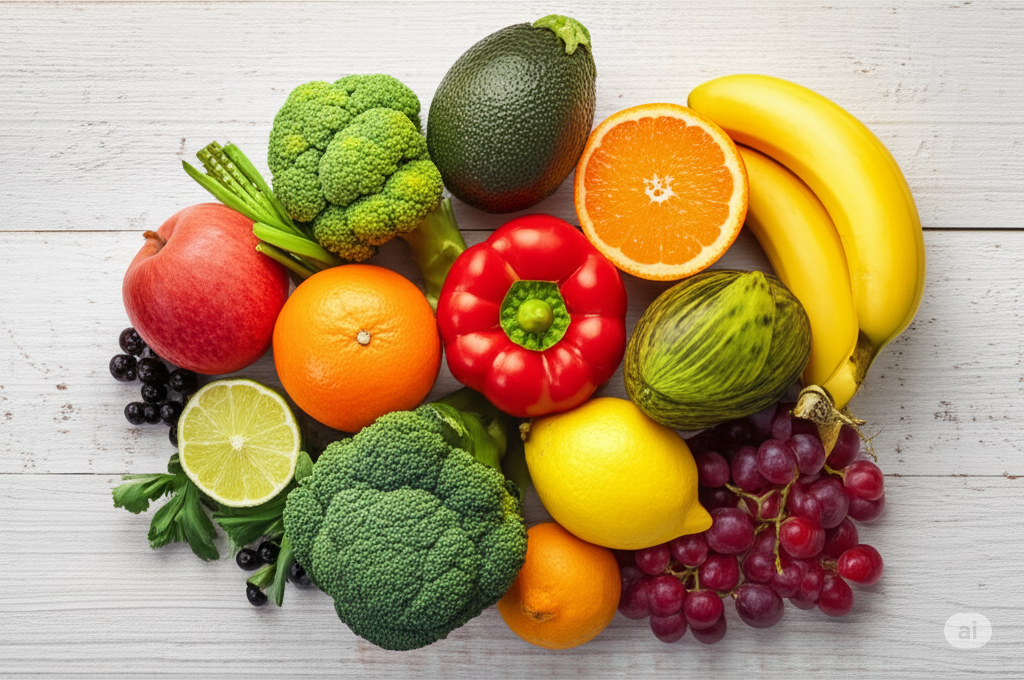India, a land of diverse cultures and traditions, also boasts a rich heritage of nutritious foods that have been integral to its cuisine for centuries. Often referred to as “superfoods,” these ingredients are packed with essential nutrients, antioxidants, and other health-promoting compounds. Incorporating these Indian superfoods into your daily diet can significantly boost your overall well-being. Let’s explore some of the best options:
1. Turmeric (Haldi): The Golden Healer
This vibrant yellow spice is a powerhouse of curcumin, a potent anti-inflammatory and antioxidant compound. Turmeric has been traditionally used to treat various ailments and is now backed by scientific research for its potential benefits in boosting immunity, reducing inflammation, and improving brain health. Add a pinch of turmeric to your curries, lentil dishes, or even a warm glass of milk.
2. Ginger (Adrak): The Digestive Aid
Ginger, with its distinct flavor and aroma, is known for its digestive properties. It can help alleviate nausea, reduce bloating, and soothe an upset stomach. Ginger also possesses anti-inflammatory and antioxidant properties. Include ginger in your tea, soups, stir-fries, or enjoy it pickled.
3. Amla (Indian Gooseberry): The Vitamin C Champion
Amla is a small but mighty fruit that is incredibly rich in Vitamin C, an essential nutrient for immunity, skin health, and iron absorption. It’s also packed with antioxidants. Enjoy amla fresh, pickled, as a juice, or in the form of candies and preserves (in moderation due to added sugar).
4. Millets (Bajra, Jowar, Ragi): The Ancient Grains
These gluten-free grains are nutritional powerhouses, rich in fiber, minerals like iron and calcium, and antioxidants. Millets are also known for their low glycemic index, making them a good choice for managing blood sugar levels. Incorporate millets into your diet as rotis, porridge, or even in salads.
5. Legumes (Dal): The Protein Powerhouse
Lentils (dal), chickpeas (chana), and other legumes are excellent sources of plant-based protein, fiber, iron, and other essential nutrients. They are a staple in Indian cuisine and are incredibly versatile. Include a variety of dals in your daily meals for sustained energy and overall health.
6. Ghee (Clarified Butter): The Healthy Fat (in moderation)
While often debated, ghee, in moderation, can be a healthy addition to your diet. It’s a source of fat-soluble vitamins and has been traditionally used in Ayurveda for its various health benefits. Choose pure, grass-fed ghee and use it sparingly for tempering dishes or as a spread.
7. Spices (Cinnamon, Cardamom, Clove): The Flavorful Health Boosters
Beyond their culinary uses, many Indian spices offer significant health benefits. Cinnamon is known for its blood sugar-regulating properties, cardamom for its digestive benefits, and cloves for their antioxidant and anti-inflammatory effects. Use a variety of spices in your cooking to enhance flavor and reap their health advantages.
8. Nuts and Seeds (Almonds, Walnuts, Sesame Seeds): The Nutrient-Dense Snacks
Nuts and seeds are packed with healthy fats, protein, fiber, vitamins, and minerals. Almonds, walnuts, and sesame seeds are particularly beneficial and are commonly used in Indian cuisine. Enjoy a handful of nuts as a snack or incorporate seeds into your meals.
Incorporating Indian Superfoods into Your Diet:
The beauty of these superfoods lies in their versatility. They can be easily integrated into your daily cooking in various ways. Start by adding a pinch of turmeric and ginger to your everyday curries and teas. Include millets and lentils in your weekly meal plan. Snack on a handful of almonds or walnuts. By consciously incorporating these nutrient-rich ingredients, you can significantly enhance your daily nutrition and pave the way for a healthier and more vibrant life.













Leave a Reply